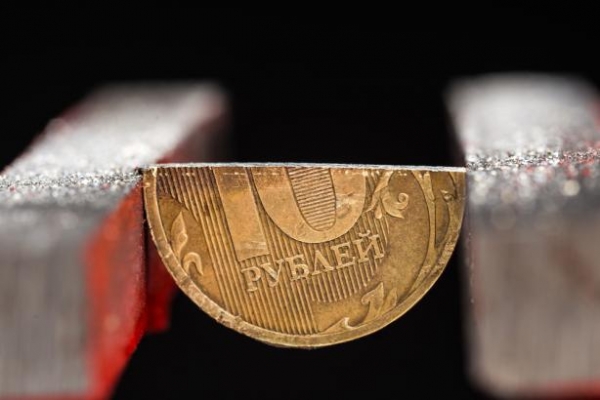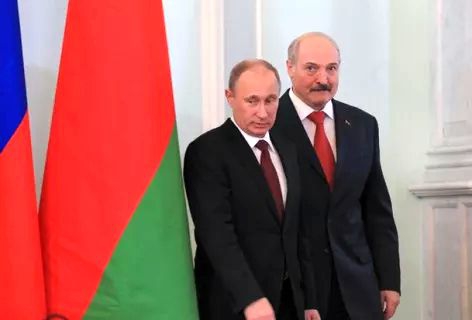Many Russians believe that Russia and the U.S. are very similar. Both countries have a huge territory, they both have a penchant for the Wildcats, both of them are not alien to lawlessness and violence, and they both deal with issues of infrastructure in the last turn. So what is preventing Russia from becoming another America is a democratic state and the engine of the world economy?
Russia received a chance in the early 1990-ies, but mostly she missed him. The first post-Soviet decade brought almost unlimited freedom, and widespread corruption and economic decline. During the second decade of freedom was gradually limited, and the economy began to grow due to high energy prices — in the middle of the third decade it became clear that it was all a Mirage. Did the Russians simply unable to build a society which would guarantee them prosperity in the U.S.?
In 1990, when the Soviet Union was on the verge of collapse, Robert Schiller (Robert J. Shiller) of the Yale University Russian economist and Maxim Boiko, who later occupied important positions in the government and became a wealthy investor, conducted a survey among residents of Moscow and new York, trying to figure out their attitude to free markets. They did not ask questions related to some abstract concepts such as “economic freedom” and “capitalism” and instead focused on specific situations. The results of this study showed significant differences in attitudes of Russians and Americans. At the end of 2015 Schiller and briskly conducted the survey again. The results of their research were recently published, showed that Russians support the idea of the free market no less than Americans, but their views on some major issues still are very different, and this difference probably explains why Russia has failed to become just like US.
Schiller and Boyko asked residents of Moscow and new York, will it be acceptable if a factory that manufactures kitchen tables for 1 thousand dollars and unable to meet the demand, will raise the cost of tables at $ 100 despite the fact that the production costs will remain the same. In 1990, 66% of Muscovites and 70% of new Yorkers replied that they consider it unacceptable. In 2015 this view was shared by 68% of Muscovites and only 57% of new Yorkers. Answers to another question — the question, is it acceptable to raise the price of flowers during the holidays, when the demand for them increases dramatically — showed that over the past 25 years, Americans began to adopt more liberal views on the economy, but the understanding of acceptability among the Russians remained about the same as it was in 1990.
Then the economists asked whether the government to allow the factory or the flower sellers to raise prices in response to rising demand. In 1990, compared with the Americans, the Russians increasingly favoured by government imposed restrictions and almost as often agreed with the need to regulate prices in the tables (43% in new York and 41% in Moscow). In 2015 almost half of Muscovites spoke in support of the regulation of prices, while the number of new Yorkers that support has declined (to 35% in the case of kitchen tables).
In some situations, modern Russians have shown more favourable attitude towards market mechanisms than in 1990. The researchers asked them whether they would feel irritated if a man standing in front of them in a long queue, will sell my place in line for $ 50. In 1990 69% of Muscovites (and 44% of new Yorkers) answered this question affirmatively. In 2015, only 57% of Muscovites (and again 44% of new Yorkers) said that such a deal they really like. Perhaps it was a natural reaction to 25 years of capitalism.
According to the results of your survey, Shiller, Boyko concluded that, while the views of Americans and Russians on some issues differ, was not — and still there is no reason to say that Russians are less market-oriented than the Americans:
In 1990, before the collapse of the Soviet Union and market reforms of President Boris Yeltsin, in Russia there is a widespread view that ordinary Russians are “not ready” to transition to a market economy, because they do not understand the market and have different values. The results of the study of Schiller and his co-authors showed that, despite some differences in views between the Russians and the Americans, this view has no objective basis. Today, after 25 years of market development in Russia, this former point of view seems almost ridiculous.
However, I think that researchers have underestimated several important points in his work. In 2015 they added questions concerning democratic values, inspired by research conducted in 1992 by another group of scientists, who also formulated its questions based on the situations. The responses to these questions were recorded more differences than in the answers to the questions concerning the economy.
In 1992 only 22% of Muscovites in comparison with 29% of new Yorkers today — agreed that “society should not tolerate people whose political views differ significantly from the views of the majority.” In 2015, 37% of Muscovites answered that the dissenters should not be tolerated. 76% of Muscovites are confident that “it is better to live in a society where there is strict order than to give people too much freedom which can lead to destruction of society” — such answer was given by 69% of Muscovites in 1992 and 36% of new Yorkers today.
Apparently, Schiller and Boyko partly attributed to this shift in views the growing role of government propaganda in the Russian society: “Western democracy is usually portrayed as ineffective, immoral, hypocritical and so on, what most likely damaged the public perception of the concept of democracy and influenced the attitude towards it.” I’m not sure that the problem lies in this, since the obvious preference for a strong state that governs in the interests of the majority, combined with confidence – not changed since Soviet times — that the government should intervene in the free market.
Recently the world chess champion Garry Kasparov has published on his page in Facebook post, where he wrote that he liked “the irony of how supporters of Sanders told me, a former Soviet citizen, the triumphs of socialism and that he really is”. “The opportunity to talk about socialism is a great luxury, a luxury we have thanks to the success of capitalism, he continued. — Of course, income inequality is a huge problem. But the idea that the solution to this problem is to increase state control, strengthening of regulatory mechanisms, the increase in debt and reduction of risks threatening absurd”.
It is not surprising that Kasparov lives in the West, because in Russia it became politically inconvenient.
Recently, the Minister of foreign Affairs of Russia Sergey Lavrov has published a lengthy article where he says that Russian civilization is fundamentally different from Western civilization and that the Soviet Union was created on the basis of the number of Russians inherent values, such as collectivism. According to Lavrov, this civilizational impact has played an important role in the formation of the Western welfare States:
European governments went to the introduction of unprecedented measures of social protection it was under the influence of the example of the Soviet Union and in seeking to cut the ground from under the feet of the political left.
No matter how Lavrov rights, this influence has never been too strong in the U.S. — despite a vigorous campaign Sanders. The results of the study of Schiller and Boyko, show that, be that as it may, Americans — and citizens of a politically liberal new York — have recently become more market-oriented.
Unrelenting faith of the Russians in the paternalistic state, which continues to call himself the guardian of the traditional collectivism, is the main obstacle on the way to make Russia as strong and dynamic as America. However, I would like to point to one seemingly insignificant difference, which revealed a survey of Schiller-Boyko and which, perhaps, is no less important.
Economists asked the citizens of Moscow and new York that they would prefer to earn a lot of money, without achieving fame, or to achieve fame and recognition without the material component, for example, an Olympic medal or respect from their colleagues. In 1990 and 2015 the Russians were not interested in fame without money: only 35% and 33% of respondents respectively chose the second option — for comparison, the second option was chosen by almost half of the respondents in new York.
On the surface it means that the Russians are more practical and focus more on the business. However, most likely, they simply prefer money to respect, and admiration. As a result, they are less willing to rebel, to risk and to choose the path of most resistance. This trait is more dangerous and upsetting than the tendency towards state totalitarianism.







